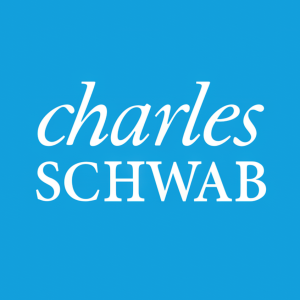Most Boomer Veterans Are Confident About Their Retirement Despite Pandemic and Market Uncertainties
SAN FRANCISCO--(BUSINESS WIRE)--Amidst a global pandemic and economic uncertainties, Boomer veterans invested for retirement are confident that they will still enjoy their golden years. According to veteran respondents of the Charles Schwab 2020 Modern Retirement Survey, 88 percent of Boomers who were former members of the military are confident their lifestyle in retirement will be everything that they envision.
The first-time survey was conducted among 400 veterans aged 55 to 75 with at least
Among those surveyed, 87 percent anticipate their quality of life in retirement will be better than that of their parents and 84 percent believe their quality of life in retirement will be better than that of their children. Further solidifying that these Boomer veterans are ready to make the most of their golden years, nearly two-thirds (63 percent) said they would rather spend their money in retirement than leave an inheritance for their children.
On average, Boomer veteran survey respondents have accumulated
Although this amount seems ample, the survey respondents also believe they need
“Military service members are trained to be confident and disciplined, and for those in our survey, it seems that carries over into their finances,” said Danielle Munoz, vice president and leader of Charles Schwab’s virtual branch network. Munoz and her team joined Schwab as part of its USAA acquisition which closed earlier this year. “But we also know many Americans, including active duty military and veterans, often live paycheck to paycheck, which can make the idea of retirement even more overwhelming. That’s why it’s important for everyone to put pen to paper. Having a basic plan in writing can help Boomer veterans make sure that the math adds up between their savings and other potential sources of income like Social Security or even a military pension.”
COVID-19 prompts impacted Boomers to refocus priorities
Despite an ongoing global pandemic, Schwab’s survey found that more than three in four (76 percent) of Boomer veterans’ lifestyle priorities in retirement remain the same as before:
- Stay fit and healthy (97 percent)
- Spend time with family (95 percent)
- Spend time at home (93 percent)
Eighteen percent of survey respondents say they or their spouse were financially impacted by COVID-19 through a salary cut or reduced hours, being laid off or furloughed, or having to retire earlier than planned. Still, Schwab’s survey found that Boomer veterans surveyed have largely stayed the course and stuck to their plan, as only four percent of respondents withdrew money from retirement accounts more due to COVID-19.
Though most Boomer veterans say they either didn’t lose much of their retirement savings during the March 2020 market slide (36 percent) or that their portfolio has since recovered (25 percent), more than half (54 percent) are worried about future market volatility impacting their retirement plans—more than the presidential election (30 percent) and the ongoing pandemic (16 percent).
Written plans help Boomers’ retirement savings go the distance
Schwab’s survey found that Boomer veterans laid the groundwork for financial preparedness early. A third (34 percent) of those surveyed began saving for retirement in their 20s, while 36 percent began in their 30s. A fifth (20 percent) waited until their 40s, while smaller subsets waited until their 50s (eight percent), 60s (one percent) and 70s (one percent).
Half (50 percent) of Boomers surveyed say COVID-19 has made them more focused on developing a clear financial plan for retirement.
But Boomers can do better when it comes to planning according to Schwab’s survey: only 39 percent have a written plan to help them achieve their financial goals in retirement. Far more (58 percent) say they’ve saved but haven’t put it in writing.
“A written plan can help smooth the transition from saving for retirement to living off your savings and help ensure that your portfolio can go the distance,” said Munoz. “A plan can help you understand your strategy for withdrawals and how they can work with other sources of income as well as your tax situation.”
About the Survey
The online survey was conducted by Logica Research, among 416 veterans aged 55 to 75 with at least
About Charles Schwab
At Charles Schwab we believe in the power of investing to help individuals create a better tomorrow. We have a history of challenging the status quo in our industry, innovating in ways that benefit investors and the advisors and employers who serve them, and championing our clients’ goals with passion and integrity.
More information is available at www.aboutschwab.com. Follow us on Twitter, Facebook, YouTube and LinkedIn.
Disclosures
Through its operating subsidiaries, the company provides a full range of wealth management, securities brokerage, banking, asset management, custody, and financial advisory services to individual investors and independent investment advisors. Its broker-dealer subsidiary, Charles Schwab & Co., Inc. (member SIPC, www.sipc.org), and affiliates offer a complete range of investment services and products including an extensive selection of mutual funds; financial planning and investment advice; retirement plan and equity compensation plan services; referrals to independent, fee-based investment advisors; and custodial, operational and trading support for independent, fee-based investment advisors through Schwab Advisor Services. Its banking subsidiary, Charles Schwab Bank (member FDIC and an Equal Housing Lender), provides banking and lending services and products. More information is available at www.aboutschwab.com.
Brokerage Products: Not FDIC Insured • No Bank Guarantee • May Lose Value
(1120-01YD)
1Retirement savings includes assets in their 401(k), other workplace retirement accounts and Individual Retirement Accounts (IRAs)






